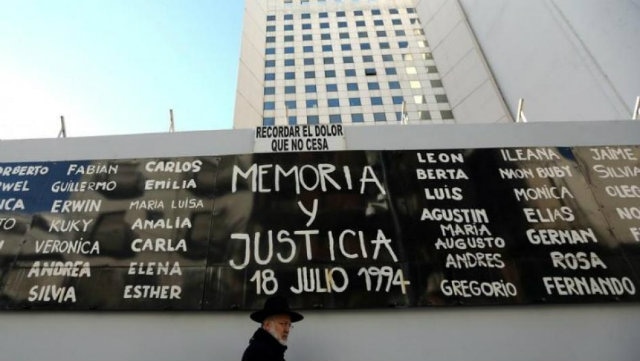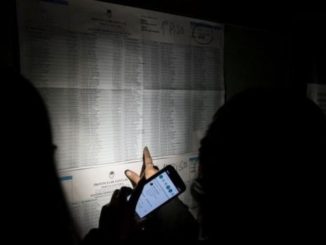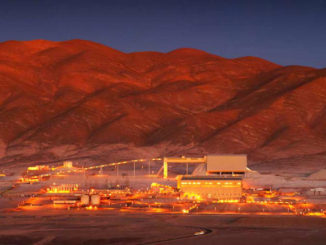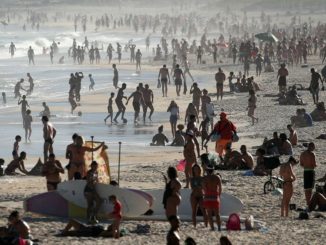
WASHINGTON, D.C. – The December 6, 2017, indictment by Judge Claudio Bonadio of former President Cristina Fernández de Kirchner, her Foreign Minister Héctor Timerman, and 10 others, for “treason” and “concealment” points to no evidence that would seem to substantiate those charges, the Human Rights Watch said on Tuesday.
Bonadio accused the defendants of conspiring with Iran to undermine the criminal investigation of the 1994 terrorist attack on the Argentine Israeli Mutual Association (AMIA), in Buenos Aires, which killed 85 people and injured 300 others.
The charges refer to a 2013 “memorandum of understanding” signed by the Kirchner administration and the government of Iran to create an international commission of jurists with powers to review the evidence against Iranians accused by the Argentine judiciary of responsibility for the bombing, and to interrogate some suspects. The indictment says that the agreement sought to ensure impunity by lifting Interpol’s red notices – a form of international arrest warrant – against the suspects. The ruling orders the pretrial detention of six people, including now-Senator Fernández de Kirchner, and Timerman, who was sent to house arrest due to health problems. The judge asked Congress to strip Fernández de Kirchner of her parliamentary immunity.
“Relatives of victims of the AMIA terrorist attack deserve justice for this heinous crime,” said José Miguel Vivanco, Americas director at Human Rights Watch. “But, instead of promoting accountability, this far-fetched indictment further tarnishes the credibility of the Argentine judiciary over the AMIA attack investigations.”
Twenty-three years after the AMIA bombing, no one has been convicted of the crime. In 2006 an Argentine federal court issued an international arrest warrant for key Iranian officials as well as a Hezbollah security chief. None have been arrested.
The new indictment fails to explain any clear need for pretrial detention. Under international human rights standards, pretrial detention should be used only as a means of last resort, often because other means are insufficient to guarantee a person’s appearance at trial, protect public safety, or safeguard the integrity of an ongoing investigation. The seriousness of an alleged offense is not in and of itself a legitimate reason for pretrial detention.
The judge ruled that the defendants have “relations” with several unspecified “subjects” and this “could imply the existence of links to hamper the investigation or even evade justice.” In the absence of adequate, individualized grounds to incarcerate the defendants pending trial, courts should immediately reverse the decision, the HRW said.
On December 11, Timerman asked Bonadio to revoke the house arrest order due to his serious health problems. Timerman receives almost daily treatment for cancer, which the house arrest would hinder, his lawyers said in a judicial brief Human Rights Watch reviewed. The next day, Bonadio rejected Timerman’s request and indicated that he should instead ask the court for permission to attend his doctors’ appointments.
The grounds for the prosecution included in the indictment also seem dubious, Human Rights Watch said. The judge provided scant evidence that the agreement could have triggered lifting the Interpol red notices. Ronald Noble, Interpol’s secretary general between 2000-2014, has repeatedly said that it could not. Bonadio has yet to call Noble to testify.
On December 11, 2017, the Argentine TV channel Todo Noticias reported that in November the current Iranian Foreign Minister, Mohammad Javad Zarif, said in a letter to his Argentine counterpart Jorge Faurie that after signing the agreement the Iranian and Argentine governments had “asked the Interpol to end its obligations regarding the AMIA case.” Timerman and Noble denied it.
Parts of the ruling point to the secrecy of the negotiation with Iran, the alleged “lack of university education” of Timerman, and unsubstantiated assertions that Iranian officials wrote the agreement. Some inferences in the indictment are simply bizarre and weak to the point of being ridiculous, Human Rights Watch said.
“Even if the agreement with Iran provided little guarantee of justice for the AMIA victims, pursuing criminal charges for treason against officials responsible for negotiating an international accord seems strained and unreasonable,” Vivanco said.
The 2013 memorandum of understanding with Iran included vague language that could likely have made the oral statements by suspects in Iran inadmissible as evidence before Argentine courts – a critical factor to ensure accountability. The HRW criticized the agreement in 2013. The agreement never took force entirely because, in May 2015, a federal court ruled it unconstitutional, and the current administration of President Mauricio Macri did not appeal.
The 2006 arrest warrant in the case was for the former Iranian President Ali Akbar Hashemi-Rafsanjani and seven Iranian officials, including the intelligence and foreign ministers, commanders of the elite Revolutionary Guard military units, and diplomats at the Iranian embassy in Buenos Aires at the time. It accuses them of planning, directing, and otherwise participating in the bombing. The court also issued an arrest warrant for a Hezbollah security chief, who was assassinated in a car bomb attack in 2008. Hashemi-Rafsanjani died in January 2017.
Interpol has issued red notice alerts for six of these men to determine their location and detain, arrest, or restrict their movement “for the purpose of extradition, surrender, or similar lawful action.” Iran has repeatedly denied its involvement in the attack, refused to extradite the men to Argentina, and sought to lift the Interpol notices. No extradition treaty exists between Iran and Argentina.
In 2015, an Argentine court began a separate trial of several officials – including former President Carlos Menem, and a judge – for their alleged interference with the initial investigation into the bombing.
The investigation concerning Fernández de Kirchner, Timerman, and others began in January 2015 when prosecutor Alberto Nisman accused them of conspiring with Iran to undermine the investigation. Days later, he was found dead in his home with a single gunshot wound to the head and a pistol beside him matching the wound. Courts have yet to determine whether Nisman’s death was suicide or murder. A Gendarmerie report published in September said Nisman had been murdered.
Bonadio said in his recent indictment that he has yet to analyze thousands of emails and hundreds of phone calls presumably relevant to the case. Any evidence that the Kirchner administration engaged in crimes in its negotiations with Iran should be seriously taken into consideration, yet Bonadio’s 491-page indictment provides no convincing evidence of any such crimes.
Fernández de Kirchner is also facing prosecution in five alleged corruption cases, including four in which she has been indicted. Timerman is not facing any other charges.
“Any official who engaged in corruption should be appropriately prosecuted, but Bonadio’s unreasonable charges do little to advance the cause of justice in Argentina,” Vivanco said.



